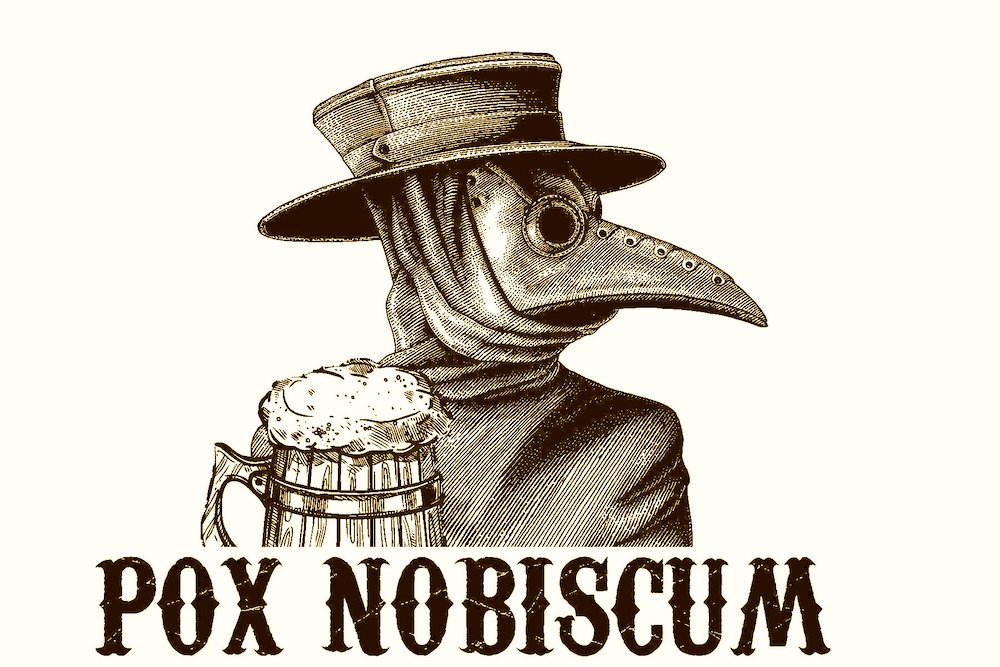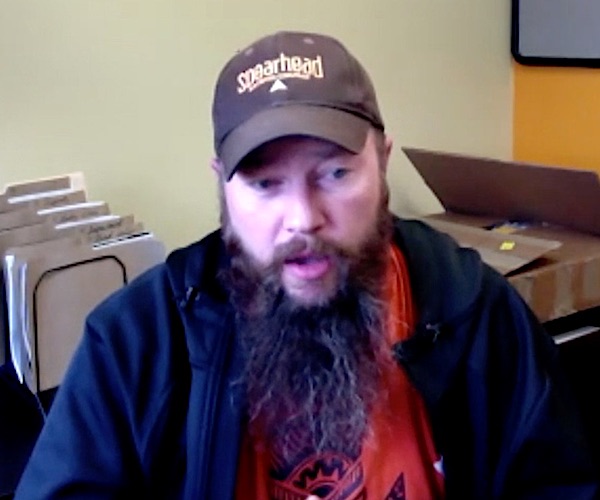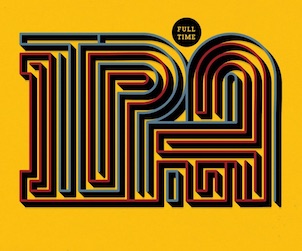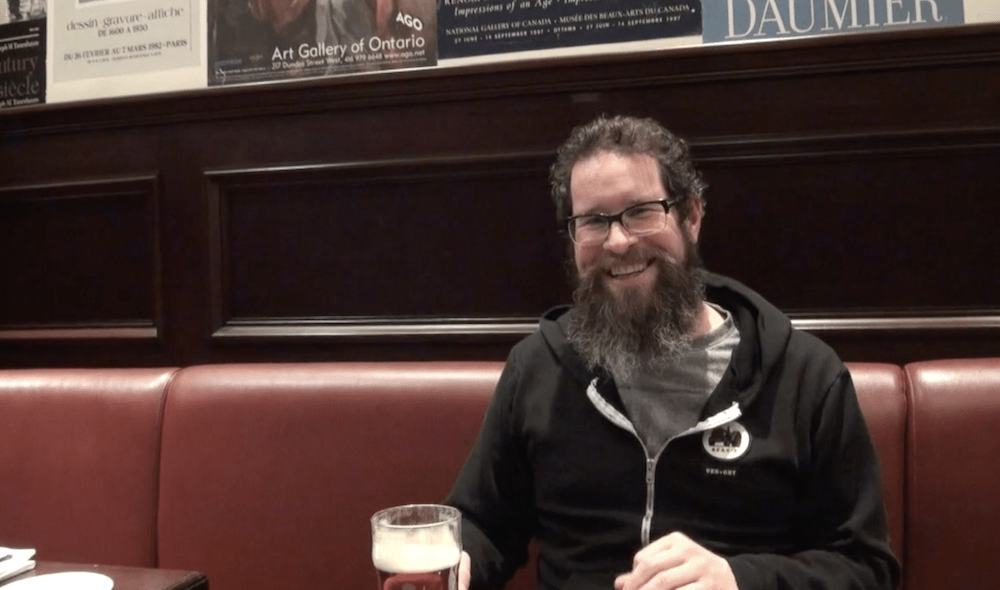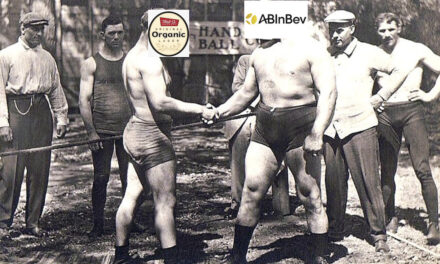Some years ago I found myself in a pub, itself not a rare event, talking to a man I scarcely knew, the friend of a friend. He couldn’t understand why we drank in a pub, when it’s so much cheaper to drink at home. This could have led to a long conversation about the history and sociology of pub life or a very short conversation. I chose the short one and said something non-controversial about the weather.
One thing the pandemic has taught us is that drinking at home is indeed cheaper than going to the pub, though we’d known that all along. In these parts, local brewers have been altogether happy to deliver beer to your door, so you almost never had to go out at all. You could just sit at home swilling beer until you ran out, then you went online and ordered some more. Fun, wasn’t it? You probably won every argument with the cat, at least until the cat stalked out, tail high.
People aren’t like cats. We’re pack animals, like dogs. Imagine an English football ground filled with 50,000 dogs. They’d love it. They’d bark, they’d sniff, they’d mate, they’d fight. It would be just like humans. Now fill the place with cats. A nightmare for all concerned. Who’s going to feed me? The litter box is vile. Who let all those damn calicos in? Look, I’ve seen cat cafes. It isn’t moggies sitting together sipping lattes and chatting. It’s people sipping lattes and hoping a cat will deign to pay them some attention.
But this isn’t about dogs and cats; it’s about us. Like dogs, we’re happy with some down time, but we’re at our best with other members of our pack, even if (perhaps especially if) we’re not actually talking to them. People go to coffee shops, I understand, not necessarily to talk to people but simply to be in human company. Many of us feel this way about pubs. Sometimes we go to see our chums, and it’s a fine thing, but some of us also take pleasure in sitting in a pub alone, reading and observing.
When my family moved to Canada in the 1950s, Toronto had nothing really like a pub. Actually, nothing at all like a pub. It had beverage rooms, which were not even close to the same thing. So my parents had friends over or they drank at friends’ homes. But that’s a party. Someone has to tidy up (and stock up) beforehand and clean up afterwards. There are expectations about a party. It’s an occasion. Going to the pub on a Friday evening isn’t an occasion; it’s just going to the pub. No one’s going to be wounded if you don’t turn up or you leave sooner than usual. And no one’s going to be annoyed if you turn up early. Just order a drink and read a book until the others get there. You won’t find your half-dressed hosts doing a spot of last-minute vacuuming before people arrive. Well, not in the pubs I go to anyway.
But that’s the beauty of the pub. Unless it’s Trivia Night or some other special event, there’s no agenda to the pub. Someone unlocks the door, people come in and order drinks, and before you can say “I’ll have another”, acts of pubbery are breaking out. And that’s just one pub in one town.
It is obligatory, when writing about the pub life, to mention Ray Oldenburg and his excellent book, The Great Good Place, a study that discusses the Third Place, a place that is neither work nor home, where people gather democratically in a neutral setting. It could be a Viennese coffee house or a strip mall Tim Hortons, but if you’re reading this it’s more likely to be a pub. Of course it is.
It is also obligatory to quote the words of Samuel Johnson: “There is nothing which has yet been contrived by man, by which so much happiness is produced as by a good tavern or inn.” Now, to be fair, Doctor Johnson breathed his last in 1784, so he didn’t live to see a Stephen Sondheim musical, live jazz, or even Derry Girls on television. Even so, it’s indisputable that he was on to something.
A good pub, of course, has beer, and lots of it. Especially draught beer, which unless you live in a frat house you’re unlikely to get at home. And, as previously noted, you don’t have to clean up after yourself, which is probably also the case in a frat house, though I’ve never set foot in one. I know, from personal observation, that they don’t clear the snow from their sidewalks.
And things happen in pubs. Life happens in pubs. I met my wife in a pub. The old Morrissey Tavern on Yonge Street was not an obvious cauldron of romance, but ours was not the only marriage that germinated in those little draught beer glasses. Not to mention whatever more temporary alignments may have taken place, perhaps hatched while people waited for Nick the waiter to notice them. Nick was a genial enough man, but I long suspected he was an agent for the Woman’s Christian Temperance Union, such was his apparent distaste for actually serving beer to his customers, which you might have thought was exactly his job. He had a gift for just failing to make eye contact. At that moment when you thought you had his attention, he glanced away, presumably to ignore someone else. He was quite brilliant in his own way, albeit a very annoying way. I believe he retired after being awarded the “genius” grant from the MacArthur Foundation.
So from time to time you get a bad server. Life’s like that. You get a bad pint, you get a bad run of music from the guy behind the bar who reckons you want to hear what he wants to hear, or your favourite barstool, with the reliable source of light for reading, is taken by some galoot who isn’t even reading, if he even knows how. If it’s taken this long to realize that life is imperfect, you have my hearty congratulations. You’ve had a good run, Mr. Musk.
But these are exceptions; otherwise we’d all steer clear of pubs. Usually they’re very pleasant places to be. The staff are friendly, your fellow patrons not obviously mad, the beer choices diverse and interesting, and the music not too offensive. You’re off to a good start. I once encountered an airport bar where you entered what you wanted on a sort of tablet, after which someone brought it to you. Language difficulties overcome and hardly any conversation required. This bit of technology might have been welcome at the Morrissey during one of Nick’s shifts, but for the most part we like the human interaction.
And it turns out to be good for us. A new study suggests that people are happier when they maintain a diverse “social portfolio”, which means knowing a lot of people, not necessarily well. The Harvard researchers report that people who have more “weak ties” report greater satisfaction and wellbeing. I take a “weak tie” to be, for instance, the driver of Toronto garbage truck #7751, who patrols my neighbourhood and with whom I exchange greetings on Tuesdays. Or the lady who picks up our empty wine bottles every two weeks and often stops for a brief chat.
But if you really want to diversify your social portfolio, the pub is the place. For starters, it’s close to impossible to order a drink without some form of communication with a staff person, especially if you have questions about the beer choices. And before you even get to the beer choices, there will almost certainly be an exchange of pleasantries. Your server will be anxious to know how you’re doing and, if you’ve a shred of decency, you will be equally keen to know how he or she is doing as well. There, you’re already interacting with a weak tie. Soon you may be gently probing each other for evidence of a sense of humour. If you’re not careful, you might actually become friends and you won’t be each other’s weak tie any more.
Or perhaps you’re sitting quietly at the bar. This actually happened to me one evening, shortly before the plague struck. A man two barstools to the north of me leaned over to point out that I was the only person in the place a) reading a newspaper and b) wearing a watch. It was, I suppose, a mildly interesting observation, but not one that really led us anywhere, so I finally returned to the newspaper. If I’d been Oscar Wilde, I’d have had a terrific riposte. I suppose I could have said, “Why yes, I am the oldest person on the premises, but tomorrow you’ll still be ugly.” Which is more Churchillian than Wildean, and I probably wouldn’t have said it anyway. I’m too old to get into pub fights. (And, as Dave Broadfoot liked to say, “Never get into fights with ugly people; they have nothing to lose.”)
Many of our drinking laws in this part of the world were based on the premise that if men drink, they will fight. That said, the second-best punch I’ve ever witnessed in a pub was delivered a few decades ago by a woman. Not against me, I’m happy to add, though I’m sure some have been tempted. There is a bar in the east end of this city called the Eton House. I believe it has no connection to the exclusive boys’ school in England, though the conduct seen on its premises are reminiscent of Boris Johnson at his worst.
I have no idea what led up to the blow in question, but the couple involved were seated side-by-side in a booth. It’s not easy to generate a lot of power in that sort of situation, but she managed it. Pow! Her male victim tumbled to the floor and remained there for a time. Had there been a referee on hand, he would have been counting to ten, after which he’d have held the woman’s arm skyward in acknowledgement of a knockout. I don’t condone that sort of thing, you understand, but it was an impressive display.
I don’t think I’ve seen a punch thrown in a pub since the early 1980s, which might mean I drink in unduly hoity-toity places, or possibly that, being old, I’m at home with a hot water bottle before the place gets lively. But I don’t miss the old violence. The sight of bits of furniture flying about no longer holds the charm it once did.
So if we don’t want fistfights in our pub, what do we want? Here, I’m afraid, it’s obligatory to bring up George Orwell and his famous essay, The Moon Under Water, easily located on the electronic device of your choice. In this piece, published in early 1946, Orwell describes his favourite pub. It has all the attributes he wants in a pub, though at the end he admits that he’s made it up. He doesn’t know a pub in all of London that has everything he wants. And of course there is no perfect pub. If there were, some idiot would take it over and wreck it. They do that already with very good pubs, so we can only imagine what they’d do to a perfect one. The Visigoths are never far away. Every gate has its barbarians.
Some of Orwell’s preferences now seem quaint. Even he recognizes that the strawberry-pink china mugs he likes to drink his beer from are consigned to the past. He liked to be served by middle-aged women who possibly dye their hair and call their customers “dear” and definitely not “ducky”. Orwell’s perfect pub always served draught stout. I am reminded of the story a bartender at the old Victory Café told me, about a customer who asked for a pint of Guinness. We don’t have Guinness, the bartender said, but we do have a very good local stout. No, replied the customer, I don’t like stout.
Where Orwell and I are in accord is the subject of pub music. “In the Moon Under Water it is always quiet enough to talk. The house possesses neither a radio nor a piano, and even on Christmas Eve and such occasions the singing that happens is of a decorous kind.” Kingsley Amis belonged to an organization called Pipe Down, which existed to discourage piped-in music in public places. They produced a book called The Quiet Pint, a guide to British pubs that don’t make you listen to music. The copy I have, 20 years on now, runs to 539 pages. Its Canadian equivalent would require hardly a pamphlet, and that would be mostly filler.
Perhaps I wouldn’t mind pub music as much if it weren’t so boring. I’ve heard it all before, the greatest hits of whatever decade. Eagle me no Eagles. If you must play music at me, surprise me. Thelonious Monk me. Louvin Brothers me. Carmen McRae me. Madrigal me. I’m surprisingly easy to please. Just keep Tom Petty down in the cooler where you keep the cans of Bud Light.
Still, all that said, I’ll see you down at the pub. I’ll be your weak tie if you’ll be mine.

